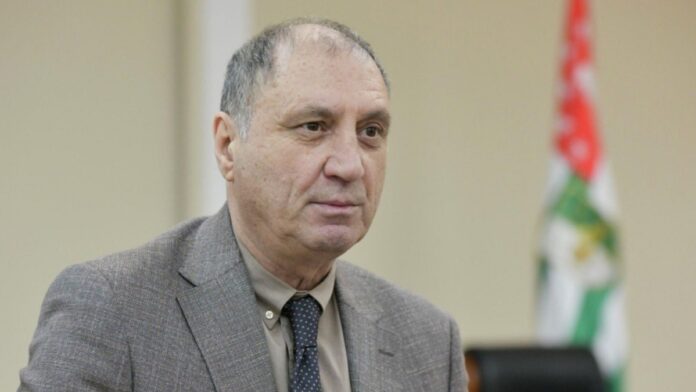
Russia has started to apply sanctions against one of its closest allies, Abkhazia. This was announced by the Foreign Minister of the self-proclaimed republic Sergey Shamba during the briefing held in Sukhumi.
“Perhaps you are already aware that social financing has been stopped since September 1. First of all, we are talking about teachers, doctors and power structures (employees). Apparently, these are the first steps. In addition, the question is posed in such a way that from now on, we will have to pay for the flow of electricity (from Russia), which we face every year in winter, at commercial prices,” the Abkhaz Foreign Minister announced.
The contradictions between Moscow and Sukhumi arose in the background of discussions about the sale of real estate to foreigners in Abkhazia, which started years ago and has been reactivated in recent months. According to the Abkhaz legislation, citizens of other countries, including Russia, cannot buy real estate here.
At the same time, however, Russian businessmen want to build 10,000 new apartments on 150 hectares in the eastern regions of the self-proclaimed republic. In Abkhazia, there are fears that the construction of a de facto new city may upset the demographic balance, and its new residents, most of whom are expected to be Russians, will eventually receive Abkhazian passports and start participating in local elections. The head of Abkhazia, Aslan Bzhania, claims that the authorities will do everything to prevent this. Official Moscow, for its part, demands to fulfill the assumed obligations.
“Non-fulfillment of the obligations undertaken by us may lead to certain sanctions, we were warned about it at different levels”, declared Shamba.
The diplomatic scandal heated up even more when the local media published the document adopted as a result of the August 19 meeting between the head of Abkhazia and the deputy chief of staff of the Russian president, Dmitry Kozak. In it, the Russian side clearly warns that the sanctions will remain in effect until Abkhazia ratifies the agreement on mutual recognition of judicial and arbitral judgments related to economic issues and does not eliminate the obstacles facing Russian investors, primarily in the real estate market. One of the most scandalous points of the document is about another commitment undertaken by Abkhazia. With that, the president of the self-proclaimed republic, Aslan Bzhania, undertakes to submit information about those opposition leaders who, having Russian citizenship, “harm the interests of the Russian Federation, hinder Russian-Abkhazian cooperation” by September 20. The authors of the Cossack-Bzhania protocol claim that this information will be used to discuss the issue of depriving Abkhaz dissidents of Russian citizenship.
Despite these threats from Moscow, the Abkhaz oppositionists are not going to retreat. This week, almost all opposition forces announced their readiness to act under one banner. The Abkhaz opposition, however, declares that it is not fighting against Russia, but against Russian oligarchic circles, just as, according to their definition, the president of Belarus is doing it.
“The Russian government should stop sponsoring those clans, those oligarchic groups, which, having become close to the government, advance the interests of big business, blocking our relations. This is what the President of Belarus, Alexander Lukashenko, says, and he is right,” said Adgur Ardzinba, one of the leaders of the Abkhaz opposition, during a press conference in Sukhumi. He also advised Moscow before imposing sanctions to remember that Belarus, Abkhazia and South Ossetia were the only ones that supported Russia’s war in Ukraine.
In Georgia, this Russian-Abkhazian debate is being followed quite discreetly. Prime Minister Kobakhidze limited himself to a short statement, claiming that “quite interesting processes are underway” between Moscow and Sukhumi.
Georgians who used to live in Abkhazia express themselves more sharply. Abkhazia’s parliament-in-exile Speaker Jemal Gamakharia, for example, claims that Russia’s suspension of funding cannot help but affect Abkhazia’s military capabilities and social condition.
“The reductions primarily refer to the power unit. It is perhaps the most painful, because Russia finances almost half of the expenses of Abkhazia’s power structures. Funds allocated to healthcare and education have also been reduced. Here, too, almost half of the salary financing came from Russia. It is about 2 million dollars per month, which is not a small amount for Abkhazia,” Gamakharia announced.
